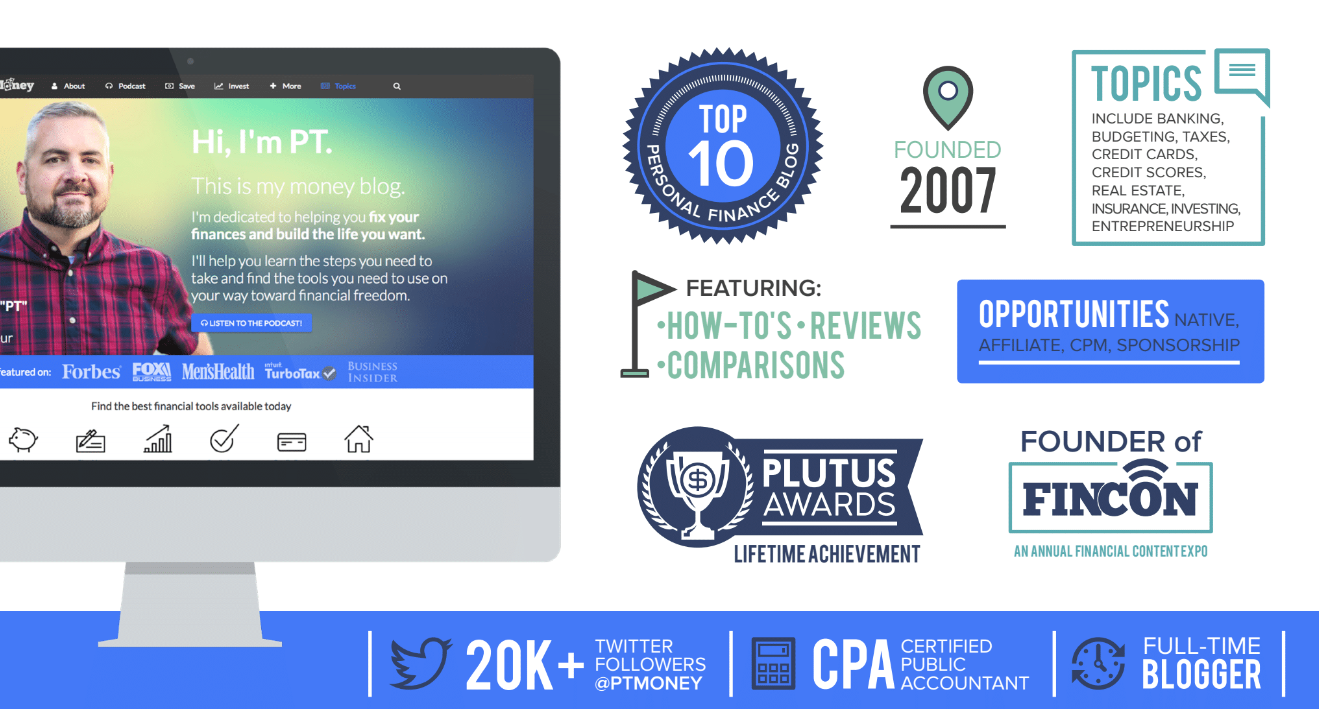
Getting your business noticed through media coverage is a great way to increase brand visibility, credibility, website traffic, and even sales. This article will explain how you can get media coverage for your business and make the most of it.
How Can You Get Media Coverage for Your Business?
Let’s break this down into simple steps so you can formulate your plan of attack to get your media attention!
1. Identify Your Target Audience
Before you pitch to media outlets, you must know who you’re trying to reach. Identifying your target audience will help tailor your message and approach to the right publications and journalists.
For instance, if you’re a business-to-business (B2B) company, you’ll want to focus on business publications and industry journalists. Alternatively, if you’re a consumer-facing company, consumer publications and lifestyle journalists should be the primary targets for your pitches.
Failing to identify your target audience before launching your PR campaign can cause significant problems.
By not thoroughly researching the publications and journalists you plan to pitch, you might miss critical opportunities or waste valuable time and resources on pitches that aren’t published. This is why it pays to take the time to research and understand who you should target.
Knowing who is most likely to cover your story can make a huge difference in whether or not a journalist decides to cover it – so make sure you have a clear idea of who you’re aiming for.
2. Build Relationships with Journalists
One of the most critical steps in getting media coverage is to build relationships with journalists and other media.
This does not mean inundating them with pitches every day but instead trying to get to know them and helping where you can. This could include providing expert quotes, giving them insight into your industry, or simply keeping them updated on your company’s recent developments.
Looking for journalists or other media who can help promote your business? There are a few excellent ways you can find the perfect fit.
- Online tools like Help a Reporter Out (HARO) and Muck Rack can be invaluable when narrowing down your search by industry, publication, or even specific topic.
- Social media is also an effective way to locate journalists who actively engage in writing about your particular field – Twitter and LinkedIn are great starting points here.
- Media databases such as Cision and Vocus offer contact details of various journalists, making it easier to find relevant people and build lists.
- Have a look at what other companies in your industry have been featured in the media before; chances are these writers may be interested in hearing from you too!
- Don’t forget that attending industry events can provide the perfect opportunity to network with potential contacts and find out more about the stories they’re most passionate about.
3. Create a Compelling Pitch
Once you’ve identified your target audience and forged relationships with journalists, it’s time to create a captivating pitch. Writing a compelling pitch to a journalist doesn’t have to be complicated.
Keep it short and direct, and make sure the essential information is provided upfront. Research the journalist you’re pitching to, tailor your story to their interests and beat and include a unique angle or personal story as a hook. Include any supporting materials – like quotes, statistics, or images – that will help make your story more credible, and use an attention-grabbing subject line when sending your email.
After sending your pitch, follow up with the journalist but be respectful of their time and don’t send multiple inquiries or pressure them to cover the story. Be persistent but not pushy; journalists receive many pitches, so it can take some time for them to respond. Offer exclusive information or access if possible; this will make your pitch stand out.
Most importantly, show them how your story will add value to their audience by explaining how it will educate, entertain or inform them.
Example Pitch Email for Media Coverage
I asked ChatGPT to help me craft an email to Forbes on behalf of my new business. Here’s the email template:
Subject: Introduction of [Business Name], a [Industry] company revolutionizing [What is being revolutionized]
Dear [Reporter’s Name],
I hope this email finds you well. My name is [Your Name] and I am the founder of [Business Name], a [Industry] company that is revolutionizing [What is being revolutionized]. I came across your recent article on [relevant Forbes article], and I thought you might be interested in learning more about our business.
[Business Name] was founded in [Year] with the goal of [Goal]. We offer [products/services] that [what makes them unique]. We believe that our unique approach sets us apart from other companies in the industry, and we are excited to be making a positive impact in the [Industry].
I would love to schedule a call with you to discuss [Business Name] in more detail and answer any questions you may have. Please let me know if this is something that interests you, and if so, I will make sure to send over additional information for you to review.
Thank you for your time, and I look forward to hearing from you soon.
Best,
[Your Name]
4. Create a Press Release
An effective press release is a great way to spread the word about your company and its latest news. Consider this as a pitch to every journalist all at once.
Writing the press release clearly and concisely is vital, as it should include all the necessary information – such as your company’s name, contact details, and a quote from a representative.
I have doubts about press releases, but they can be an excellent tool for getting media coverage for businesses. You can reach many different outlets, including newspapers, magazines, television and radio programs, online publications, and blogs, by formally announcing news and updates about your company, product, or service.
Press releases are also helpful for getting in front of journalists and media outlets that you might not otherwise be able to access. You may even have the opportunity to target specific audiences, such as industry trade publications or local news outlets.
However, it’s important to remember that simply sending out press releases is not enough to guarantee media coverage. They should form part of a comprehensive strategy involving building relationships with journalists, understanding your target audience, and crafting compelling pitches.
The way press releases are written has also changed since the digital age, with the option to distribute them via online press release distribution services to reach a wider audience.
Press releases must be written clearly, concisely, and excitingly, with the essential information featured prominently at the beginning of the copy. A well-crafted release that is timely, relevant, and captivating will increase your chances of receiving attention from media outlets.
Related: 7 Ways to Grow Your Business | My $0 to $1 Million Dollar Story
5. Create a Media Kit

Finally, a media kit is essential to any successful PR strategy. It’s a great way to provide reporters with all the information they need to tell your company’s story.
It should include everything from your company’s background and services or products to contact details and recent press releases. It should also demonstrate why your story is worth telling; ensure you provide compelling information and visuals to help the journalist cover your story in the best possible way.
If you can offer exclusive access, extra materials, or another type of bonus to reporters, this can set you apart and encourage them to cover your story.
6. Follow Up
Following up with journalists after sending out your pitch or press release is critical. You could send a polite reminder, ask if they have any queries, or provide additional materials that may help cover the story.
Staying in touch lets them know that you are still interested in getting your story featured and can increase the chances of media coverage.
Another way to keep your company front and center are by providing exclusive access or content that other outlets don’t have. This gives reporters a unique angle or an extra incentive to include you in their stories.
Finally, it’s essential to remain professional while following up; you want to demonstrate that you understand their need for timely responses and respect the process.
Bonus Ideas for Getting Media Coverage
Create media yourself. The Internet has democratized media. You can easily create your own. Start a blog, podcast, or Youtube channel and start making attention for yourself and your business.
Strategies like SEO, email marketing, and social media marketing can quickly drive the kinds of numbers a major new outlet could.
Expand your definition of “media.” Secondly, I would suggest looking beyond journalists and traditional media for attention. They no longer own the large share of attention anyway.
Seek relationships with new media stars like influencers, bloggers, podcasters, and Youtube creators. Create an affiliate program for your product or service and fast-track your efforts.
Conclusion
Getting media coverage for your business can dramatically raise brand awareness and drive website visitors.
You can improve your chances of getting featured by pinpointing your target audience, constructing relationships with reporters, and creating a persuasive pitch.
Moreover, crafting a press release and media kit and staying in touch with journalists can make all the difference.
The post How to Get Media Coverage for Your Business appeared first on Part-Time Money®.
from Part-Time Money® https://ift.tt/X9ublHL
Comments
Post a Comment
We will appreciate it, if you leave a comment.